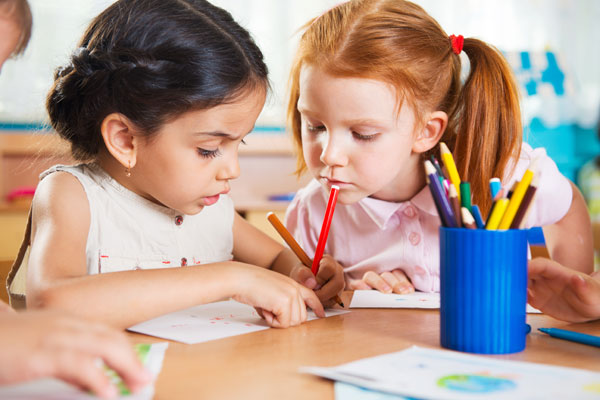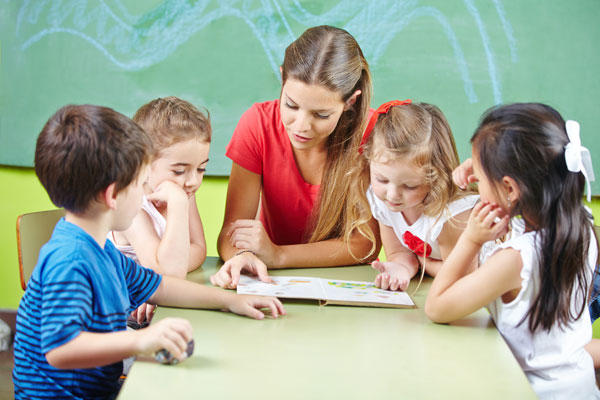Pre-Kindergarten age-group: four – five years
With at least one adult for every 10 preschoolers, your child will get the attention they need as they gear up for more structured classroom experiences.
During our time together, pre-kindergarteners develop a passion for learning and experience a true sense of achievement in literacy, math, science, social studies, arts, technology and healthy habits.
Areas of focus
- Literacy building writing skills - increased vocabulary, model writing, and letter practice
- Literacy pre-reading skills - interactive reading, book knowledge, print knowledge and take home family activities
- Mathematics developing skills - exploring concepts of addition, subtraction and classification, structured activities and math games
- Science - understanding of physical, life and environments
- Social studies - understanding of people, places and environments
- Arts - knowledge and understanding of dance, music, drama, and visual arts
- Technology - awareness and beginning basis of tools and technology
- Social and emotional development - problem solving with peers, building peer relationships, developing self-regulation, understanding social cues
- Physical skills development - large and fine motor skills, CATCH activities
- Healthy habits - understanding healthy eating and personal safety, while building lifelong enjoyment of physical activities
- Body, mind and spirit - developing social skills, core values and a foundation for social responsibility
Your pre-kindergartener’s day
When children arrive, teachers create an environment for a smooth transition from home.
Once the day gets going, kids participate in:
- Large-group learning to explore areas of daily life, weather, letter, numbers and colors
- Small-group learning, which expands on concepts shared in the large group and works to serve more individual needs
- Interest-based learning that gives preschoolers the opportunity to make their own choices
- Several transitions (washing hands before a meal, stories before nap time, etc.) that form a predictable routine, which helps preschoolers learn social skills and develop self-help abilities
At the end of the day, our staff assists children in a smooth transition out of the classroom. Parents get information and updates on how the day went for your preschooler. To help with name recognition and literacy development, children sign themselves out for the day (along with a parent).
Available programs
- Full-day Child Care
- Part-day Preschool (ages 33 months to five years)
- Summer Programs

